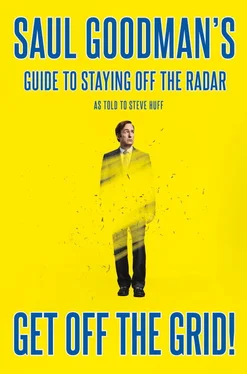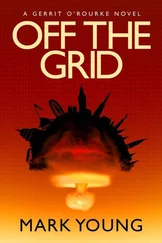Returning to Ron’s hinky feeling after one of his off-the-books transactions—our man on the car lot begins to notice lookie-loos chatting up other sales folks. These inquisitive customers are reminiscent of the guy who called him “sir.”
Hell, thinks Ron, there’s something. And these lookie-loos: they test-drive, they sit and chat, but none of them ever buy. It’s the end of the month! The deals don’t get better than this, and still they’re not biting?!
There must be shenanigans afoot.
Here’s what Ron does: after investigating the Social Security Death Index (it’s not hard to do, especially if you have access to certain genealogy databases) and noting that his brother doesn’t show up as deceased, Ron has a heart-to-heart with himself.
He and Todd were about the same height, with different colored hair. They were the sort of siblings who could almost be mistaken for twins, if you weren’t wearing the right glasses.
Ron heaves a big sigh and decides he’ll give it a shot. He’ll resurrect Todd.
Back in the city, Ron pockets his late brother’s social security card. He grabs his birth certificate. He heads to his mom’s place, which he owns and rents out now dear old ma has also passed away. Ron picks up an old tax notice from the state with Todd’s name on it—a smallish debt his brother had left still comes up each spring, because as we’ve seen, the unfortunate Todd’s death hasn’t ever been recorded.
Now Ron has the three things he needs to establish a legitimate state-issued ID in Todd’s name (but in Ron’s image): birth certificate, official bill of some kind, social security card.
Ron does just that.
Over the next few weeks, he makes several other moves. He puts his mom’s house on the market, knowing it will sell pretty quick (it does). He cashes out the sale and shifts that money into his LLC account.
Two states away, via an agent, he purchases a small, modest home under Todd’s name. He sets up all the utilities in the same way. None of these transactions are connected to Ron’s name at all. His commercials never get airtime south of Toledo, so he feels pretty comfortable that he won’t be recognized as his charming salesman self.
Most importantly, Ron starts laying down a few lines to the good people at the car dealership. He puts some cover story gambits into play. They’re vague, but still pointed. He mentions to an accounting clerk that he’s worried about an out-of-town relative struggling with cancer. To a mechanic in the service bay, he admits that he’s got some worrisome debts keeping him up at night.
Ron tells these stories and keeps them consistent. He’s well aware that there’s nothing like a good smokescreen to confuse anyone who might be trying to track you down should you decide it’s time to head for the hills.
Then: he puts his plan into motion.
He cuts the outside lines going into his own house. He watches carefully to see if that brings any action on the street; it does not. His home isn’t under surveillance yet, at least not at night.
Ron kicks in his own back door and begins trashing the place. It’s not fun, he hates breaking his precious stuff, but what can you do? He even ends up leaving some blood drops he knows will be traced back to him. Injuries acquired during the struggle, of course.
After putting the finishing touches on the violent tableaux, Ron slips across several backyards quietly. There’s a packed go-bag in a beat-up Honda parked a few streets away, a vehicle registered to Todd. Ron revs the engine, and just like that: he’s gone.
Once he’s settled down as Todd in his new town, he uses the nest egg he’s brought along to give himself time to find a legit job, because new people in the neighborhood with no apparent means of support could invite suspicion.
Ron goes into retail, yes. But he sure as hell is no longer selling cars, and he’s no local television star.
Ron, whose story may just be a little more real than Teddi’s, is an example of a guy who both had some peculiar advantages—Annie the funeral director, a dead brother whose death was not well-reported, and a lack of extended family looking to chase him down—not to mention a sizable nest egg with which to begin his new life. His job in sales taught him to think in terms of social engineering. Even the most honest car salesperson you know has, at some point in their career, gone to bat with a bold-faced humdinger of a lie to close a deal for one reason or another, and they’ve done it with a straight face. I’d bet my new life on it.
Where Ron’s story gets iffy is the prospect that the cops were definitely doing the chasing and not some illicit outfit pissed because he was horning in on their own business fencing stolen autos. Criminals wouldn’t be so bad, but if the cops were after him, the dead brother move might screw Ron over big time. All it takes is one inspector to check his family history, see Todd’s name, and have a lightbulb go off. Then Ron/Todd wakes one morning to the sound of a jackbooted cadre of the government’s finest battering his front door into splinters.
Still, he had the official papers, the go-bag, and a very expertly rendered set of stories that might just leave everyone wanting to know his fate kind of confused as to where to start the manhunt.
Ron’s a pretty good example of things going just about right. But what if they don’t?
Leo’s Last Ride
Leo is a good dude, but he’s had some troubles. Early in life, Leo understood that he could make extra money as a “subcontractor,” working some deals on the street on behalf of some powerful dudes.
He establishes a clientele pretty quickly. He’s not a big operator, not the main moneyman—but Leo feels like he’s just a small-time merchant with a conscience. Our buddy even has the good grace to turn away anyone who strikes him as too young!
Anyway, one day the most banal thing pushes him off his chosen corner: construction. Cops directing traffic, torn-up pavement and sidewalk—if you’ve ever spent time in a city, you know the drill.
Leo picks the wrong corner to resume business. In alarmingly short order, our pal is on the shitlist of the biggest distributor in the city. Fearing retribution, Leo’s own supplier skedaddles.
Leo has a few regulars, but his supplies dwindle—and worse, the big guy he pissed off isn’t interested in a new agent; he’s interested in demonstrating what happens when you step out of your own row and do business on the top man’s block.
Leo is marked.
He comes up with a plan. First, he buys a fake ID from a buddy, Jared, and for good measure Jared throws in a birth certificate to go with it. Some dead dude, Jared says. Leo doesn’t try to get a license.
He buys himself a scooter—a sedate silver number, cruising at thirty-five mph tops. He’s sure it will get him where he needs to go.
He tells his mom that he’s decided to join the army. She’s shocked, but at the same time pretty pleased; he needed to get a new life, something better, and maybe the army will pay for his schooling. She always thought he’d make a fabulous actuary!
Leo’s plan is pretty simple. Get to the highway on the outskirts of the city, then ditch the scooter and jump aboard a late-running Greyhound bus—a ticket purchased in his name. He takes with him a good chunk of money, a lightly packed go-bag, and a smart phone he purchased still in the box from Jared.
Leo is never seen again. And not in the good way—the “sleep with the fishes” way.
I feel bad just thinking about good ol’ Leo, but if you’ve been paying attention, you already know every misguided decision that led to his untimely demise.
Casually purchased fake papers from an acquaintance.If you’re going to clue someone in to your new identity, make sure that you don’t know them at all, or that they’re someone you can trust when the sugar strikes the saucepan. What if Jared worked for that kingpin who had a bee in his bonnet? Jared’s loyalty might not have measured further than a quick payout, or more likely—a grisly beating.
Читать дальше












